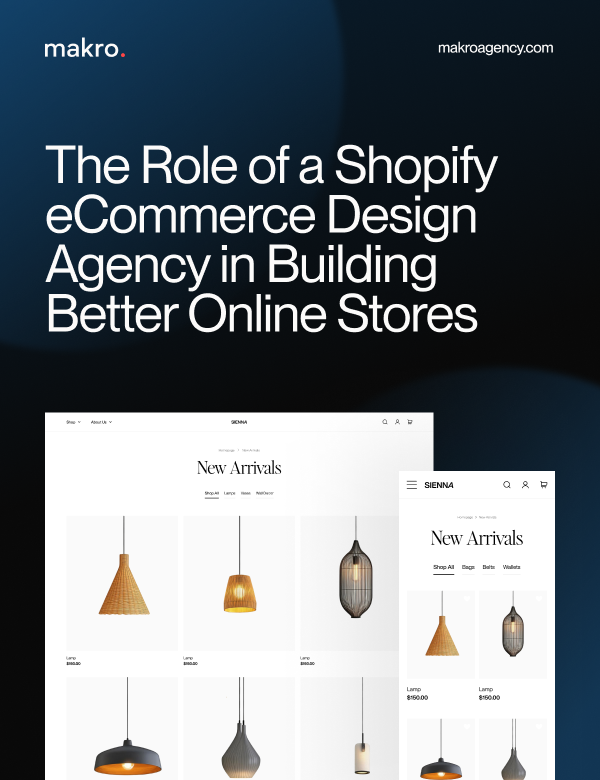The Benefits of a D2C Strategy for Shopify Stores and How to Scale
The rise of Direct-to-Consumer (D2C) brands has transformed e-commerce, allowing businesses to build direct relationships with their customers, enhance brand loyalty, and maximize profits. Shopify provides an excellent platform for D2C brands, offering the tools needed to sell directly without relying on third-party retailers or marketplaces.
In this blog, we’ll explore the key benefits of a D2C strategy for Shopify stores and provide actionable insights on how to scale your business for long-term success.
What is a D2C Strategy?
A Direct-to-Consumer (D2C) strategy allows businesses to bypass intermediaries like wholesalers and marketplaces, selling their products directly to customers through their own website or online store. This approach enables brands to control their pricing, customer experience, and marketing efforts.
Benefits of a D2C Strategy for Shopify Stores
1. Higher Profit Margins
By eliminating third-party retailers, D2C brands keep a larger share of revenue, avoiding costly commission fees associated with marketplaces like Amazon or Walmart.
2. Stronger Brand Identity & Customer Relationships
Owning the entire customer journey allows brands to create unique shopping experiences, reinforce brand values, and build long-term customer loyalty through personalized interactions.
3. Full Control Over Pricing & Marketing
Unlike selling through retailers, a D2C strategy eliminates pricing restrictions, enabling brands to set competitive prices, run exclusive promotions, and leverage targeted marketing campaigns.
4. Data Ownership & Customer Insights
Selling directly means businesses have full access to customer data, including purchase history, browsing behavior, and preferences. This information helps in optimizing product offerings, refining marketing efforts, and enhancing the customer experience.
5. Improved Customer Experience & Personalization
D2C brands can tailor the shopping experience through personalized recommendations, loyalty programs, and direct communication via email, SMS, or social media.
6. Agility & Faster Market Adaptation
By controlling the entire supply chain, D2C businesses can quickly test new products, launch limited-edition collections, and adapt to consumer trends without waiting for third-party approval.
How to Scale Your D2C Shopify Store
1. Optimize Your Website for Conversions
- Use high-quality product images and videos.
- Ensure a seamless mobile experience.
- Simplify checkout with one-click payments and multiple payment options.
2. Leverage Data-Driven Marketing
- Implement email automation for abandoned cart recovery and post-purchase engagement.
- Use Facebook, Instagram, and Google Ads to target high-intent shoppers.
- Experiment with influencer marketing and affiliate programs to drive organic traffic.
3. Enhance Customer Retention with Loyalty Programs
- Introduce exclusive discounts for repeat customers.
- Offer a subscription model for recurring purchases.
- Utilize personalized email marketing to maintain engagement.
4. Expand Your Sales Channels
- Integrate Shopify with social commerce platforms like Instagram Shopping, TikTok Shop, and Facebook Marketplace.
- Explore B2B opportunities by selling wholesale while maintaining a D2C presence.
5. Invest in Scalable Fulfillment & Logistics
- Partner with 3PL (third-party logistics) providers for efficient order fulfillment.
- Optimize inventory management to prevent stockouts and overstocking.
- Offer fast and reliable shipping options to enhance customer satisfaction.
6. Improve Customer Support & Experience
- Implement AI-driven chatbots for instant responses.
- Offer multi-channel support, including live chat, email, and phone.
- Collect and analyze customer feedback to improve services.
Strategize for Sustainable Growth
A D2C strategy on Shopify empowers brands to take full control over their business, enhance customer relationships, and maximize profitability. However, scaling a D2C store requires strategic planning, data-driven marketing, and operational efficiency.
Want to optimize and scale your Shopify D2C store? Makro Agency specializes in building high-performance eCommerce solutions, helping brands implement effective D2C strategies for sustainable growth. Contact us today to unlock the full potential of your Shopify store!








.png)


.png)






















































.png)

.png)



.png)

.png)


